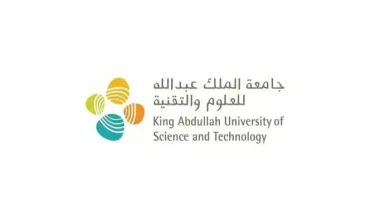Saudi HR Min: Companies with 50+ Employees Must Provide Student Training

In a significant move aimed at enhancing the skills and employability of the Saudi workforce, the Ministry of Human Resources and Social Development in Saudi Arabia has introduced a new requirement.
Minister Ahmed Al-Rajhi issued a new regulation regarding companies with more than 50 employees are now mandated to provide student training programs.
This bold step by the Saudi HR Ministry poises to bridge the gap between academia and the job market. At the same time, this fosters a culture of continuous development among young Saudi talents.
The Importance of Student Training
Bridging the Skills Gap
Accordingly, one of the primary objectives of this new mandate is to address the prevalent skills gap in the Saudi job market. Companies play a pivotal role in preparing young Saudis with the knowledge needed to excel in their chosen careers.
This is also particularly important in industries where technological advancements are rapidly changing the landscape, ensuring that the workforce remains competitive and relevant.
Enhancing Employability
Conversely, providing students with opportunities for hands-on training and exposure to real-world workplace scenarios can significantly enhance their employability. It allows them to gain practical experience, develop soft skills, and make valuable connections within their respective industries. As a result, students are better prepared to secure meaningful employment upon graduation, reducing the unemployment rate among Saudi youth.
Improved Recruitment and Retention
Moreover, companies that invest in student training programs are likely to attract top talent and boost employee retention rates.
Graduates who have benefited from such initiatives are more likely to choose these companies as their preferred employers. Additionally, a well-structured training program can lead to a more skilled and productive workforce, contributing to the overall success of the organization.
Fulfilling Corporate Social Responsibility (CSR)
Additionally, embracing the mandate for student training allows companies to fulfill their corporate social responsibility in the development of the Saudi workforce. This can also positively impact a company’s image and reputation. Thus, potentially attracting more customers and investors.
Collaboration with Educational Institutions
Furthermore, by bridging the skills gap and enhancing employability, this initiative benefits both students and businesses. It offers companies the chance to attract top talent, improve their reputation, and contribute to the development of the Saudi workforce.
As this regulation takes root, it has the potential to transform the employment landscape in Saudi, ensures a brighter future for its youth and sustained economic growth.
Related Topics
General Administration of Education Launches AI Courses
Saudi, UK Discuss Fostering Educational Partnership
KSA Stops Contracting with Company with Regional Headquarters outside Kingdom





